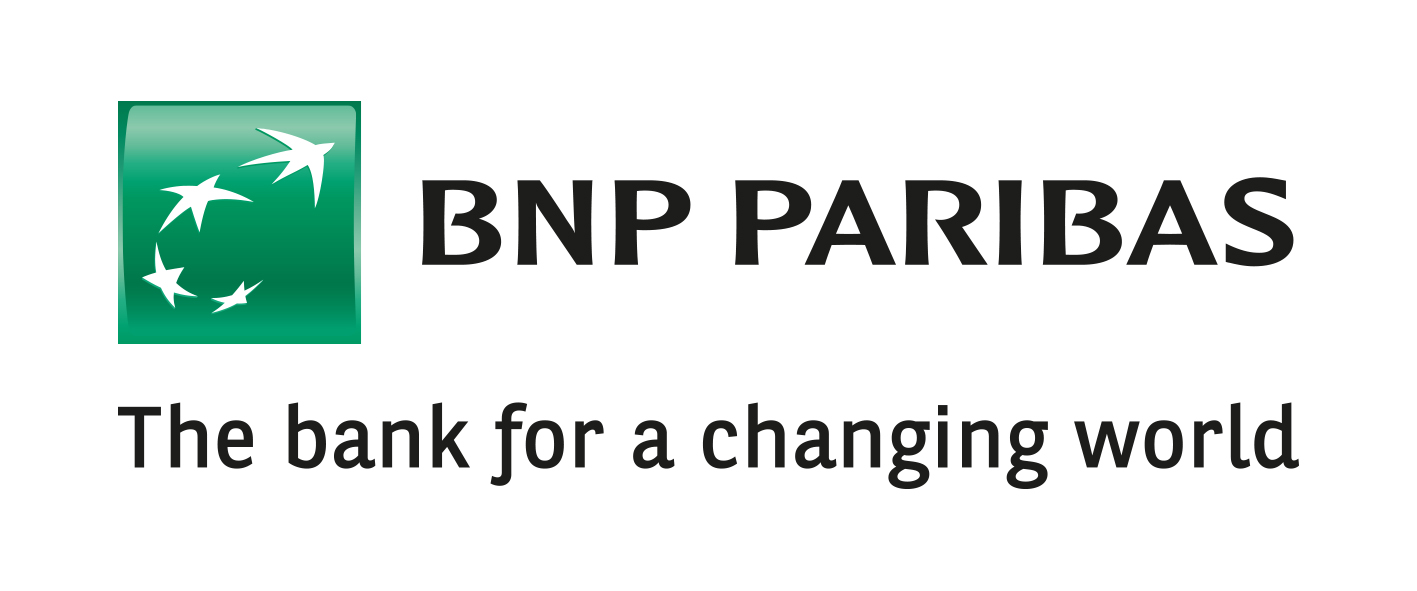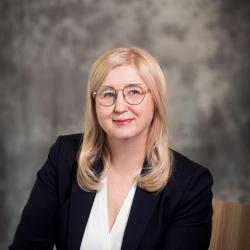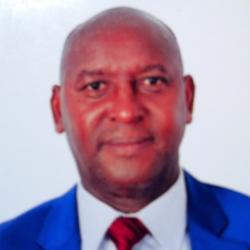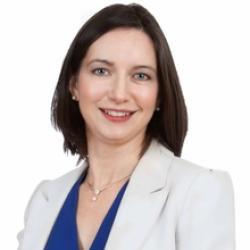Masterclasses
Masterclasses
Masterclasses - June 16, Brussels
ALL TIMINGS SHOWN ARE IN CEST
09:00 – 10:00
Registration and refreshments
09:00 - 10:00
09:00 – 09:05
Reserve management
09:00 - 09:10
10:00 – 10:10
Chair's opening remarks
10:00 - 10:10
Jean-François Rigaudy became Deputy Head of Banking and Head of Treasury in July 2013.
He joined the BIS in 1988 as a Portfolio Manager and, after holding various positions in Treasury and Asset Management, was appointed Head of Treasury in 1999.
Mr. Rigaudy retired from the BIS on 1 September 2020.
Before joining the BIS, he worked at the Bank of France, first in banking supervision and then in the foreign exchange and reserve management area.
Mr Rigaudy holds degrees in private law and history and a diploma from the Institut d'Études Politiques in Paris, where he also lectured in economics from 1984 to 1988.
10:10 – 10:40
Executive address: how is geo-political tension impacting reserve management?
10:10 - 10:40
- How are the current sanctions affecting central banks?
- The impact on inflation
- What does the future hold for currencies and assets around the world?
Ondra Stradal joined the Czech National Bank in 1998 and after one year at the open market operations desk he became a fixed income portfolio manager. Between 2004 and 2007 Ondra covered global central bank clients as a fixed income salesman at Goldman Sachs in London. After rejoining the Czech National Bank Ondra was appointed the Head of Foreign Reserves Management in 2008. In 2016, Ondra was selected by the CNB Governing Board to represent the Czech Republic at the International Monetary Fund in Washington, DC. He spent two years as an Advisor and one year as a Senior Advisor to the Executive Director of the Central and Eastern European Constituency at the IMF Board of Directors. Ondra holds a Masters degree in economics from the Charles University in Prague and has been a CFA charterholder since 2003.
10:40 – 11:10
Panel: managing fixed income portfolios
10:40 - 11:10
Sponsored by:

- The impact of inflation fixed income portfolios
- What does this mean for allocation?
- What role will diversification play in the future of fixed income portfolios?
Johanna Lasker
CEO, North America and head of of central banks and institutions
BNP Paribas Asset Management
Johanna is the CEO North America for BNP Paribas Asset Management (BNPP AM). She is also the Head of Central Banks and Official Institutions.
As CEO for North America, Johanna is responsible for our strategic leadership and development. She manages the growth of our business, overseeing business development, and maintaining direct oversight of management and effective governance in the region. In her capacity as Head of Central Banks & Official Institutions, Johanna’s responsibilities include managing and growing the official sector business globally, while also ensuring we are meeting our clients’ needs.
Johanna originally joined FFTW, a predecessor of BNPP AM, in 1997. She then left the firm in 2000, rejoining in 2004 to focus on the official institutions business. Since 2013, she has been the head of the Central Banks and Official Institutions team, successfully growing our client base and increasing our AUM for this sector. In addition to working for BNPP AM and FFTW, Johanna worked in the Corporate Finance division at UBS for two years, where she was an Associate Director in the Consumer Products Group in New York. She later transferred to the Global Industrial Group in Japan where she lived for a year.
Johanna has over 20 years of experience. She earned an MBA in Finance and International Business from New York University, and a BA in East Asian Studies from Stanford University. She is based in New York.
I have been working for the National bank of Slovakia since 1993. Initially I was involved in the liability management tasks including the debut bond issue of the bank in international markets, initial talks with rating agencies, hedging strategies etc. Currently I am heading the Risk Management and Investment Strategy Section responsible mainly for risk management, performance measurement, limit setting and control. Our duties involve also some middle office functions and regular update of the investment strategy. I am acting as a member of the Investment committee, which is responsible for coordinating activities in the foreign reserve management area, taking decisions within the agreed investment policy and providing advise to Bank board.
As a member of the Risk Management committee at the ECB I have the opportunity to cooperate on common tasks with colleagues from the National central banks of the Eurozone. I graduated University of Economics in Bratislava, Slovakia, MSc in Finance Programme at the Manchester Business School, and I am a FRM holder.
11:40 – 12:00
Networking break
11:00 - 11:30
12:00 – 12:30
Panel: investing with external managers
12:00 - 12:30
Sponsored by:

- Selecting an appropriate external manager: a checklist
- How can external managers help set internal benchmarks?
- How will the use of external managers increase or decrease in the future?
Hish is a Partner in the Investment department and leads LCP’s wealth advisory work which includes providing advice and ongoing support to sovereign wealth funds, central banks, and private wealth firms. He works with his institutional clients and other stakeholders in a collaborative manner to help them find ways to achieve their objectives while managing risk.
Hish is a senior member of LCP’s Investment Strategy group which is responsible for developing LCP’s approach to setting our clients’ investment strategy and asset allocations. He also works closely with LCP’s in-house technology team to develop customised reporting and risk monitoring tools that are used by our clients to enhance their decision-making.
He is a senior researcher on the fixed income research team. Hish was responsible for LCP’s work in helping clients construct high-quality fixed income portfolios for clients with a focus on liquidity, stability and income.
Hish joined LCP having graduated from the London School of Economics with a degree in actuarial science. Hish is a qualified CFA charter-holder.
Róbert Rékási, CFA, CIPM is the Head of Foreign Exchange Reserves Management at the Central Bank of Hungary. His department is responsible for managing the country’s international reserves to support monetary policy and financial stability of the local banking system. In addition to daily liquidity and portfolio management his team contributes to the strategic asset allocation process and generates ideas to improve the risk/return profile of foreign exchange reserves including the introduction of new asset classes. He is also personally in charge of management of the AUD and CNY portfolios of the central bank.
09:00 – 09:10
Climate
09:00 - 09:10
12:30 – 12:30
Chair's opening remarks
09:30 - 09:45
Barbara has been working at Narodowy Bank Polski (NBP) for eleven years. She began work at Poland’s central bank as Deputy Director of Cash and Issue Department, where she currently holds the position of Director. During her work for the central bank she was involved in the introduction of a new series of circulation banknotes and coins, the change of denominational structure, and the introduction of new regulations regarding cooperation with the cash market. Before she joined the central bank, for seven years she had held the position of Sales Director at the Mint of Poland. The professional experience gained at the central bank and the mint allowed her to optimise many processes along the supply chains. She is the chairwoman of the Polish Cash Circulation Council and is active in the NBP and Polish Security Printing Works research and development group, which was established on her own initiative. She specialises in product development, and in addition to cash management, she is also responsible for collector values issued by NBP. She is considered an expert in this field in Poland. She graduated from the University of Szczecin and completed postgraduate studies at the Faculty of Management of the University of Warsaw.
12:30 – 13:00
Presentation: sustainable finance: measuring the carbon footprint
12:30 - 13:00
- Understanding your portfolio’s carbon footprint
- What tools do investors need to evaluate their portfolio’s carbon footprint
- How can technology ensure more sustainable portfolios in the future?
I am Principal Advisor in the Centre of Excellence of DG Statistics in the Deutsche Bundesbank, responsible for research coordination in the Directorate and topics in statistical concepts and international relations. In recent years, much of my time is devoted to enabling statistical work with fintech and innovation in statistics, as well as to measurement concepts for sustainable finance.
Earlier, I directed the Corporate Balance Sheet Statistics and coordinated the implementation of an integrated micro-data based information and analysis system, designed to serve as a hub for micro data in the Bundesbank – both externally and internally. In the Research Centre of the Deutsche Bundesbank, I set up the German PHF, a large scale panel survey on household finance.
In 1998, I entered the Deutsche Bundesbank, having completed my PhD studies at the University of Mannheim. Ten years later, I received a habilitation degree in Economics from the same university. My research involves theoretical and empirical work on household and firm behaviour, specifically issues related to corporate finance, household finance, investment, development, innovation, the distribution of income and wealth, as well as studies of the monetary transmission process.
I live in Frankfurt, Germany, with my wife and two daughters.
13:00 – 14:00
Networking break
11:00 - 11:30
14:00 – 14:30
Executive address: climate risk and asset management
14:00 - 14:30
- How central banks are integrating climate risk into their asset management?
- Implications for the portfolio
- The evolving investment system at Norges Bank
Mr. Birger Vikøren started his career at Norges Bank in 1987 when he joined the Bank as an economist on the economic policy department. He's since been in and part of a range of departments within the Bank and more recently Mr. Vikøren has been appointed Executive Director and Chief of General Secretariat, a role he moved into in 2016.
Mr. Vikøren is Chair of the Norges Bank's pension fund and is Norges Bank's representative on the board of Finanstilsynet (Financial Supervisory Authority of Norway).
14:30 – 15:00
Panel: integration of ESG strategies into portfolio management
12:00 - 12:40
Sponsored by:

- Sustainable finance: what is it?
- How has the Bank of Italy integrated ESG factors into their investment strategies?
- Impacts on the equity and corporate bond portfolio
Enrico Bernardini is Director at the Climate change and sustainability hub of the Bank of Italy. He is coordinator of the Bank’s contact group of experts and sustainability and climate-related topics. He’s a Bank’s representative in the workstream “Net Zero” of the Network for Greening the Financial System. He has contributed to the ESG integration into the Bank’s equity investment policy. He led the drafting teams for the Responsible Investment Charter and the first Report on sustainable investment and climate risks. Enrico has co-authored articles on the carbon transition risk of utilities’ investment, on machine learning for portfolio construction with ESG data and on central banking and sustainable finance. He was a member of the Bank’s Task Force on sustainable finance for the Italian Presidency of G20 in 2021. He has worked at the European Central Bank and at De Nederlandsche Bank. Enrico holds a PhD in Banking and Finance and a Msc in Asset Management.
15:00 – 15:30
Panel: the role of ETFs in the modern portfolio
11:10 - 11:40
Sponsored by:

- How are central banks using ETFs to support their investment strategies?
- Risks and opportunities with ETFs
- Implementing an effective ETF strategy
Steve Palmer is Global Head of ETF Product at HSBC Markets and Securities Services. Steve has been in the ETF industry since 2005 when he set-up the ETF Trading desk at ABN Amro. He left there to set-up an ETF market making firm until joining HSBC in 2016. Steve was recognised for his pioneering ETF Fair Value algorithm by being nominated in the 2020 ETF Stream’s 30 Most Influential list.
Mr. Søren Schröder has worked for the Danish Central Bank, Danmarks Nationalbank, within Risk Management since 2007. He is Head of Risk Control in the Banking and Markets department, with responsibilities within setting lines & limits, monitoring and reporting risk, operational risk management, ESG, implementing and analyzing financials instruments, including ETFs.
15:30 – 15:50
Networking break
14:45 - 15:15
15:50 – 16:20
Panel: strategies for greening the portfolio
16:00 - 16:40
Sponsored by:

- Evaluating the quality of a sustainable portfolio
- How to avoid greenwashing when investing
- What role will benchmarking play in the future of sustainable finance?
Erhard joined Invesco in August 2017 as a portfolio manager focusing on balanced accounts and capital protected products. Furthermore, Erhard is contributing to the sustainability team focusing on integrating ESG aspects into the systematic investment process. He started his career as a portfolio manager in Deutsche Asset Management’s institutional Multi Asset and Risk Overlay team. Erhard holds a Master’s degree in Theoretical Physics from the Humboldt University Berlin.
Anna Hyrske is the principal responsible investment specialist at the Bank of Finland. Her duties include the development of Responsible Investment (RI) policies and targets, implementing policies in practice, supporting portfolio managers in integrating environmental, social and governance (ESG) and working in international and national working groups to enhance RI. Before joining the Central Bank, Anna was the Head of Responsible Investment at Ilmarinen, a Finnish pension insurance company. Anna has over 20 years of experience in responsible investing practices across asset classes. She has co-written two books on Responsible Investing in Finnish and her first book in English will be published later this year.
Dirk Broeders is a Senior Financial Risk Manager at the Financial Markets Division of De Nederlandsche Bank and a Full Professor of Finance at the School of Business and Economics of Maastricht University. He served as a Fellow at the Financial Stability Institute of the Bank for International Settlements and is a former Executive Member of the International Organisation of Pension Supervisors. He has published widely on finance and obtained his Ph.D. from Tilburg University.
16:20 – 16:50
Executive address: what role do central banks play in combatting climate change?
16:20 - 16:50
- A central bank’s initiatives to green its operations
- Understanding and assessing climate risk and their systemic impact
- How can central banks use stress testing in their climate change risk management?
Dirk Broeders is a Senior Financial Risk Manager at the Financial Markets Division of De Nederlandsche Bank and a Full Professor of Finance at the School of Business and Economics of Maastricht University. He served as a Fellow at the Financial Stability Institute of the Bank for International Settlements and is a former Executive Member of the International Organisation of Pension Supervisors. He has published widely on finance and obtained his Ph.D. from Tilburg University.
16:50 – 17:00
Chair's closing remarks
09:00 - 09:10
Freyr Hermannsson is an experienced central banker and has worked with a dozen central banks and United Nations agencies since the turn of the century. He is an independent advisor focusing on sovereign asset and liability management, particularly balance sheet management and central bank policy solvency, reserve management and public debt management. He has hands-on knowledge of monetary and exchange operations, FX markets development, exchange rate regimes, FX regulations (incl. capital controls) and capital account liberalization, central banking recapitalization and related accounting issues.
Mr. Hermannsson initially joined the Central Bank of Iceland in 2000 and after several years in the private sector was drafted back into the central bank in Iceland’s 2008 financial crisis where he served as Head of Treasury. He led international reserves management, implemented central bank open market operations, negotiated government debt transactions, developed capital controls, and worked on crisis prevention and management during and after the crisis of 2008.
A mathematician by education, he holds a M.Sc. from Columbia University in Operation Research and a B.Sc. in Mathematics from the University of Gothenburg, Sweden. He has lectured on the mathematics and economics of financial markets as an Adjunct Lecturer at the Faculty of Economics of the University of Iceland.
17:00 – 19:00
Networking reception
17:00 - 18:00
The reception will feature recognition for winners of the 2022 Central Banking Awards and Regtech & Fintech Global Awards.
09:00 – 10:00
Registration and refreshments
09:00 - 10:00
09:00 – 09:00
Currency & Payments
09:00 - 09:10
10:00 – 10:10
Chair's opening remarks
10:00 - 10:10
Austėja Šostakaitė leads the work on the digital euro in the Bank of Lithuania. In the current role as a project manager, she is coordinating local digital euro project tasks and conducting quality assurance as a member of the project steering group within the Eurosystem. It includes analysing policy and technical questions for CBDC implementation in national, regional, and international contexts, coordinating policy position regarding digital euro project management and product strategy. Her prior experience spans a market infrastructure expert role at the ECB focusing on policy and technical aspects of CBDC, experimentation on digital euro and analysis of DLTs, privacy enhancing techniques, programmable money. Previous work also focused on the novel technologies for the financial infrastructures and resulted in papers on DLT, instant payments and digital currency experiments published in peer-reviewed journals.
10:10 – 10:40
Executive address: developing an effective online cash management mechanism
10:10 - 10:40
- The ‘Cash Service Alliance’
- Overcoming disruptions in mobility and logistics
- Enabling the efficient routing of cash between banks
Ralph William Meris is Deputy Director of the Bangko Sentral ng Pilipinas (BSP) and one of the proponents of the Cash Service Alliance-this year's Central Banking Awards Currency Initiative winner.
He led the BSP’s Coin Education Program and Old Banknote Series Demonetization Campaign, which were awarded Best Communications Program Runners up at the 2017 and 2019 Excellence in Currency Awards. Ralph was also speaker and panelist at the 2019 Coin Conference, 2020 Asia Cash Cycle Seminar and 2021 Future of Cash Conference.
He has 15 years of central banking experience, notably in currency management and communications, and organization planning. He holds a Master's degree in Applied Economics.
10:40 – 11:10
In conversation: how can technology increase the efficiency and sustainability of the cash cycle?
10:40 - 11:10
- How has the role of cash changed over the past two years?
- What technologies are being used to support innovation within the cash cycle?
- How can recirculation policies enhance efficiency?
Barbara has been working at Narodowy Bank Polski (NBP) for eleven years. She began work at Poland’s central bank as Deputy Director of Cash and Issue Department, where she currently holds the position of Director. During her work for the central bank she was involved in the introduction of a new series of circulation banknotes and coins, the change of denominational structure, and the introduction of new regulations regarding cooperation with the cash market. Before she joined the central bank, for seven years she had held the position of Sales Director at the Mint of Poland. The professional experience gained at the central bank and the mint allowed her to optimise many processes along the supply chains. She is the chairwoman of the Polish Cash Circulation Council and is active in the NBP and Polish Security Printing Works research and development group, which was established on her own initiative. She specialises in product development, and in addition to cash management, she is also responsible for collector values issued by NBP. She is considered an expert in this field in Poland. She graduated from the University of Szczecin and completed postgraduate studies at the Faculty of Management of the University of Warsaw.
11:10 – 11:40
Presentation: greening the currency lifecycle
11:10 - 11:40
- What role will cash play in the stability of the monetary system as the payments landscape evolves?
- How is the Bank of Spain supporting the evolution of the cash cycle?
- Predictions for the future
Carlos joined the Banco de España in 2003. Since then he has been working in the cash areas, assuming different responsibilities in the definition and implementation of cash projects and policies, cash circulation analysis, banknote production issues, security and environmental topics related with the euro banknotes. He has represented the Banco de España in different national and international groups, in particular several working and steering groups depending on the Banknote Committee of the Eurosystem. During this period, he also worked at the Directorate of Banknotes of the ECB. Before 2003, he worked in a Spanish bank. He has a degree in Economics (University of Alicante), an Executive-MBA (Comillas Pontifical University-ICADE) and a Diploma in European Business (University of Northampton).
11:40 – 12:00
Networking break
11:00 - 11:30
12:00 – 12:30
Presentation: the digital euro and its role in the financial ecosystem
12:00 - 12:30
- Eurosystem motives for possibly launching a CBDC
- Use cases and design features for best value proposition
- Interplay with financial market actors
Austėja Šostakaitė leads the work on the digital euro in the Bank of Lithuania. In the current role as a project manager, she is coordinating local digital euro project tasks and conducting quality assurance as a member of the project steering group within the Eurosystem. It includes analysing policy and technical questions for CBDC implementation in national, regional, and international contexts, coordinating policy position regarding digital euro project management and product strategy. Her prior experience spans a market infrastructure expert role at the ECB focusing on policy and technical aspects of CBDC, experimentation on digital euro and analysis of DLTs, privacy enhancing techniques, programmable money. Previous work also focused on the novel technologies for the financial infrastructures and resulted in papers on DLT, instant payments and digital currency experiments published in peer-reviewed journals.
12:30 – 13:00
Panel: what role will defi play in the future of CBDC?
12:30 - 13:00
- How will defi encourage the adoption of CBDCs?
- How to ensure regulatory readiness
- DeFi for the future: potential and possibilities
Ms. Anikó Szombati is Chief Digital Officer, executive director responsible for digitalization and FinTech development at MNB, the central bank of Hungary. Her main responsibility is to promote digital transformation in the financial sector as well as within the central bank, including the implementation of cutting edge technologies and research on CBDC. MNB aims at increasing the competitiveness and efficiency of the financial sector via developing regulatory concepts on how to safely embrace new innovations brought about by technological developments. She is member of the Financial Stability Council. Before joining the central bank in 2001 she was market risk manager at different commercial banks. She holds an MSC in Finance from Corvinus University Budapest and an EFFAS diploma.
Miki is currently an adviser at the Bank of Finland Payment Systems Department exploring and monitoring developments in emerging technologies in Banking, Payments, CBDCs and Digital Assets. Prior to joining Bank of Finland, he worked as a Financial Counsellor for more than a decade at the Ministry of Finance, Financial Markets Department, as a national delegate to EU Council Financial Services Working Groups, Commission Banking Committee and Commission Expert Group on Banking, Payments and Insurance, and to OECD Financial Markets Committee Sub-Group on Digitalisation. He has also served as vice-chair of the board of directors of the State Guarantee Fund. He holds a Master’s Degree in Law.
13:00 – 14:00
Networking lunch
12:15 - 13:15
14:00 – 14:00
Fintech
09:00 - 09:10
14:00 – 14:00
Chair's opening remarks
10:00 - 10:10
Stephen Mwaura
Chairman, Fintech Institute & former head of national payments systems
Former Central Bank of Kenya
Stephen is an international consultant with broad expertise for over 25 years in digital financial services, payment systems, central banking practices and legal and regulatory frameworks. Prior to working as an International consultant, Stephen was in charge of the National Payments System division at the Central Bank of Kenya, where he championed financial inclusion initiatives in Kenya- key among them was the globally recognised M-Pesa platform run by Safaricom which currently has 27 million subscribers, equivalent to a penetration rate of 75% in mobile money sector.
Stephen has considerable experience working with a wide range of stakeholders in the digital financial world (Telecommunication firms, Banks, donor organisations, Treasury, other regulators). At a regional level, he has extended his leadership expertise in the harmonisation of various initiatives at an East Africa Community (EAC) level. At an international level, he is a regular contributor and an acclaimed global speaker at both International Telecommunications Union (ITU) and Alliance for Financial Inclusion (AFI) fora. In addition, he has excellent research capabilities and is frequently requested to carry out peer review assignments and book reviews for colleagues in the industry
14:00 – 14:30
Presentation: blockchain in finance - the promise of crypto assets and other use cases
14:00 - 14:30
- How much bitcoin can fulfil the functions of money
- CBDCs, MNB’s money museum application with a blockchain-based registry for collector coins
- The Money Museum mobile application
Ms. Anikó Szombati is Chief Digital Officer, executive director responsible for digitalization and FinTech development at MNB, the central bank of Hungary. Her main responsibility is to promote digital transformation in the financial sector as well as within the central bank, including the implementation of cutting edge technologies and research on CBDC. MNB aims at increasing the competitiveness and efficiency of the financial sector via developing regulatory concepts on how to safely embrace new innovations brought about by technological developments. She is member of the Financial Stability Council. Before joining the central bank in 2001 she was market risk manager at different commercial banks. She holds an MSC in Finance from Corvinus University Budapest and an EFFAS diploma.
14:30 – 15:00
Panel: using ML to support big data processes
14:30 - 15:00
Sponsored by:

- The role of ML in fintech
- Building effective infrastructure
- Using data-driven analytics to provide real-time insights
Accomplished senior consultant with practical knowledge of TRM systems implementation, financial modeling, software development and data analysis. Multilingual with experience in Europe, Asia and America. BS+MS in Physics, International MBA, and CFA® charter holder.
Edita is currently the Head of Data Governance Unit at the Bank of Lithuania. She is one of key persons behind the Bank’s Data Management Strategy. She is working on defining and setting the new data governance framework in the Bank of Lithuania.
Edita has over 10 years’ experience in the banking sector, from which more than 4 years in central banking. Before being appointed as Head of Data Governance Unit, Edita worked on the implementation of the new national Central Credit Register and on the project of analytical credit datasets (AnaCredit). Before that, she was heading the Loan Administration Unit in one of the small private banks in Lithuania.
I am Principal Advisor in the Centre of Excellence of DG Statistics in the Deutsche Bundesbank, responsible for research coordination in the Directorate and topics in statistical concepts and international relations. In recent years, much of my time is devoted to enabling statistical work with fintech and innovation in statistics, as well as to measurement concepts for sustainable finance.
Earlier, I directed the Corporate Balance Sheet Statistics and coordinated the implementation of an integrated micro-data based information and analysis system, designed to serve as a hub for micro data in the Bundesbank – both externally and internally. In the Research Centre of the Deutsche Bundesbank, I set up the German PHF, a large scale panel survey on household finance.
In 1998, I entered the Deutsche Bundesbank, having completed my PhD studies at the University of Mannheim. Ten years later, I received a habilitation degree in Economics from the same university. My research involves theoretical and empirical work on household and firm behaviour, specifically issues related to corporate finance, household finance, investment, development, innovation, the distribution of income and wealth, as well as studies of the monetary transmission process.
I live in Frankfurt, Germany, with my wife and two daughters.
15:00 – 15:30
Presentation: becoming a data centric organization
15:00 - 15:30
- Integrating data management strategies
- Data challenges within the central bank framework
- Using data to ensure the stability of the financial system
Edita is currently the Head of Data Governance Unit at the Bank of Lithuania. She is one of key persons behind the Bank’s Data Management Strategy. She is working on defining and setting the new data governance framework in the Bank of Lithuania.
Edita has over 10 years’ experience in the banking sector, from which more than 4 years in central banking. Before being appointed as Head of Data Governance Unit, Edita worked on the implementation of the new national Central Credit Register and on the project of analytical credit datasets (AnaCredit). Before that, she was heading the Loan Administration Unit in one of the small private banks in Lithuania.
15:30 – 15:50
Networking break
14:45 - 15:15
15:50 – 16:20
Panel: innovation in suptech solutions
15:50 - 16:20
Sponsored by:

- How can suptech encourage the resilience and stability of the broader financial system?
- Existing technologies and processes
- The next wave of suptech innovation
Lauri is Lead Supervisor in the European Central Bank’s Supervisory Technology Section, where he is coordinating the work on the Virtual Lab – the digital collaboration and innovation platform for the European Single Supervisory Mechanism. With a background in economics and econometrics from the University of Helsinki, Lauri’s career expands over analytics, information architecture and data-driven operations. Prior to joining the ECB, Lauri has been working for the Bank of Finland, the United Nations, technology startups, and several working groups for the ECB, ESRB and SSM. Lauri focuses on user feedback, quick prototyping and agile development methods for delivering value in a rapidly changing technological environment.
Isaiah Hull is a senior economist in the research division of Sveriges Riksbank. He conducts research on computational economics, machine learning, and quantum computing. He is also the instructor for DataCamp's "Introduction to TensorFlow in Python" course and the author of "Machine Learning for Economics and Finance in TensorFlow 2."
16:20 – 16:50
Presentation: quantum technology and the financial sector
16:10 - 16:50
- What is quantum technology?
- Which quantum technologies are likely to affect the financial sector?
- How can the financial sector and payment systems be protected against quantum attacks?
Isaiah Hull is a senior economist in the research division of Sveriges Riksbank. He conducts research on computational economics, machine learning, and quantum computing. He is also the instructor for DataCamp's "Introduction to TensorFlow in Python" course and the author of "Machine Learning for Economics and Finance in TensorFlow 2."
16:50 – 17:00
Chair's closing remarks
16:50 - 17:00
Stephen Mwaura
Chairman, Fintech Institute & former head of national payments systems
Former Central Bank of Kenya
Stephen is an international consultant with broad expertise for over 25 years in digital financial services, payment systems, central banking practices and legal and regulatory frameworks. Prior to working as an International consultant, Stephen was in charge of the National Payments System division at the Central Bank of Kenya, where he championed financial inclusion initiatives in Kenya- key among them was the globally recognised M-Pesa platform run by Safaricom which currently has 27 million subscribers, equivalent to a penetration rate of 75% in mobile money sector.
Stephen has considerable experience working with a wide range of stakeholders in the digital financial world (Telecommunication firms, Banks, donor organisations, Treasury, other regulators). At a regional level, he has extended his leadership expertise in the harmonisation of various initiatives at an East Africa Community (EAC) level. At an international level, he is a regular contributor and an acclaimed global speaker at both International Telecommunications Union (ITU) and Alliance for Financial Inclusion (AFI) fora. In addition, he has excellent research capabilities and is frequently requested to carry out peer review assignments and book reviews for colleagues in the industry
17:00 – 19:00
Networking reception
17:00 - 18:00
The reception will feature recognition for winners of the 2022 Central Banking Awards and Regtech & Fintech Global Awards.





























